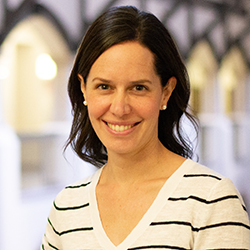
When the novel coronavirus pandemic struck, shuttering schools across the country, parents were thrust into an unexpected juggling act. All at once, many were working — possibly at home — or dealing with sudden job losses while simultaneously trying to keep their kids’ education on track.
“Nobody was ready for this,” said Jason Yip, an assistant professor in the University of Washington Information School. “Teachers weren’t ready with the infrastructure, parents certainly weren’t ready, but now it’s time and everybody’s got to become an instructional designer and they’ve got to figure it out.”
Yip and colleagues at the iSchool and UW Human Centered Design & Engineering (HCDE) department want to identify technology that’s helping families successfully keep children engaged in learning and stay connected with family and friends. They’re recruiting parents of school-age children for a nationwide study to find out.

“We saw this as an opportunity to understand what people want to do online and what kind of tools they want because everybody’s been thrust into this situation unexpectedly,” said Alexis Hiniker, an assistant professor at the iSchool and co-lead researcher. “None of this has been designed with much care. Nobody’s had much time to craft any of this. We really want to understand what’s not working for people, and how designers can produce products for families that will work better.”
The research team plans to recruit 30 diverse families with children ages 3 to 13 across the country. Each family will be expected to participate for about 30 minutes a week during the 10-week study. Families will reflect on how the technology they use helps or hinders their lives.
Later in the study, families will design new or redesign existing technologies — such as a new educational skill for Amazon Echo. Then the families will test simple prototypes of these designs. Most of these activities will be completed as a family, though there may be some caretaker- or child-only activities as well.
The researchers plan to report useful information for parents throughout the study on social media and through blog posts. Their hope is to help parents navigate a sea of seemingly endless options to help them navigate the situation.
“What we’re proposing to do here is find real stories from different types of families about what is helpful and what are the roadblocks,” said Julie Kientz, an HCDE professor and co-lead researcher. Sean Munson, an HCDE associate professor, also is a co-lead on the project, and doctoral student Rebecca Michelson completes the research team.
The team hopes to include families from a range of economic statuses, and with a range of access to technology. The greater diversity of work and life situations they can reflect in the study, the more meaningful their results will be, Yip said.
“Everybody’s impacted, so we’re hoping we can get a wide spectrum of people, from historically marginalized populations to those who have some affluence. Whether you’re wealthy or not, everybody’s affected,” he said.
The 6-month study is recommended for funding by the National Science Foundation. If you are interested in participating, please fill out the team’s screener survey.
This story includes information first published by UW News.